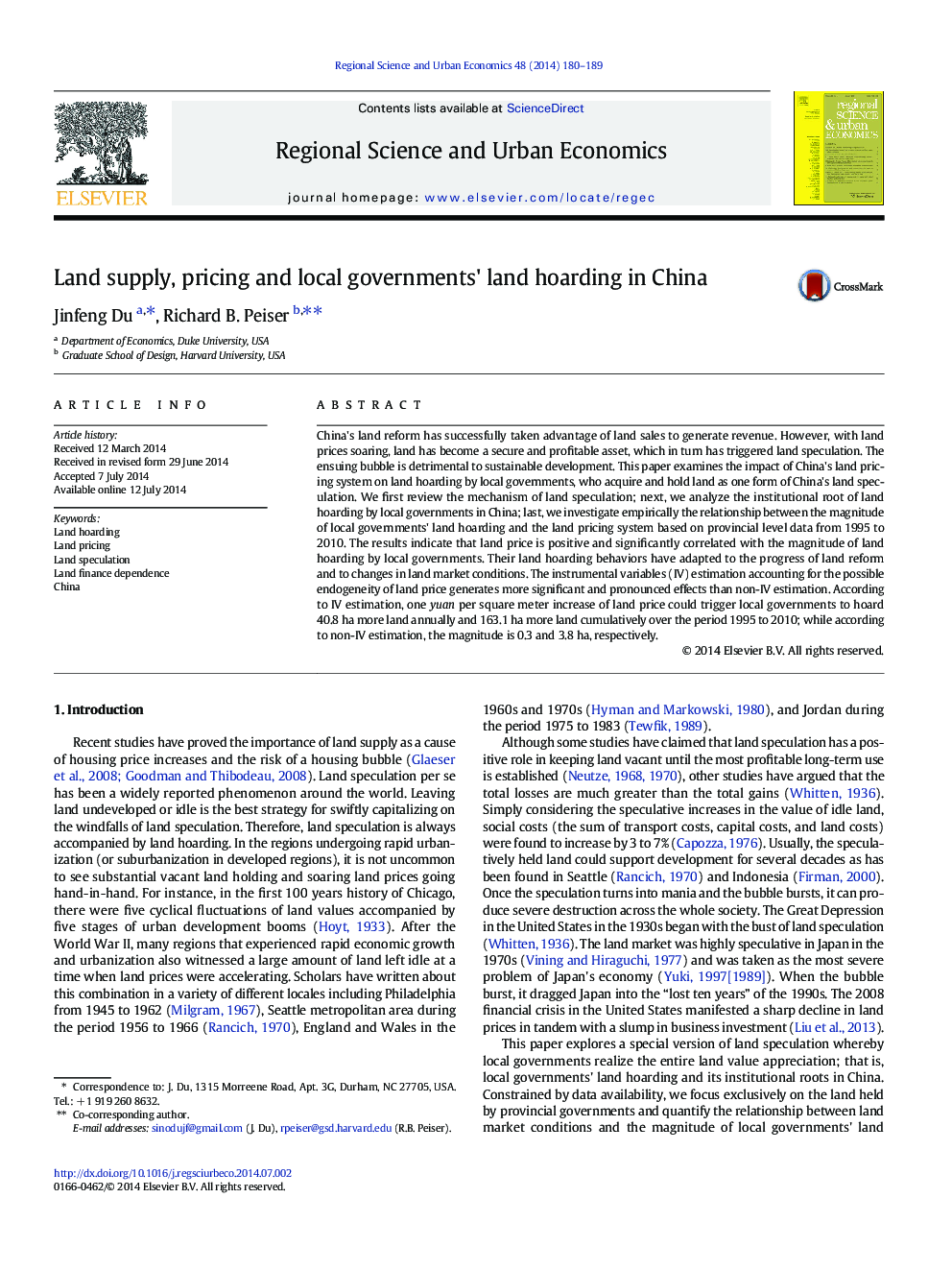| Article ID | Journal | Published Year | Pages | File Type |
|---|---|---|---|---|
| 7383967 | Regional Science and Urban Economics | 2014 | 10 Pages |
Abstract
China's land reform has successfully taken advantage of land sales to generate revenue. However, with land prices soaring, land has become a secure and profitable asset, which in turn has triggered land speculation. The ensuing bubble is detrimental to sustainable development. This paper examines the impact of China's land pricing system on land hoarding by local governments, who acquire and hold land as one form of China's land speculation. We first review the mechanism of land speculation; next, we analyze the institutional root of land hoarding by local governments in China; last, we investigate empirically the relationship between the magnitude of local governments' land hoarding and the land pricing system based on provincial level data from 1995 to 2010. The results indicate that land price is positive and significantly correlated with the magnitude of land hoarding by local governments. Their land hoarding behaviors have adapted to the progress of land reform and to changes in land market conditions. The instrumental variables (IV) estimation accounting for the possible endogeneity of land price generates more significant and pronounced effects than non-IV estimation. According to IV estimation, one yuan per square meter increase of land price could trigger local governments to hoard 40.8Â ha more land annually and 163.1Â ha more land cumulatively over the period 1995 to 2010; while according to non-IV estimation, the magnitude is 0.3 and 3.8Â ha, respectively.
Keywords
Related Topics
Social Sciences and Humanities
Economics, Econometrics and Finance
Economics and Econometrics
Authors
Jinfeng Du, Richard B. Peiser,
